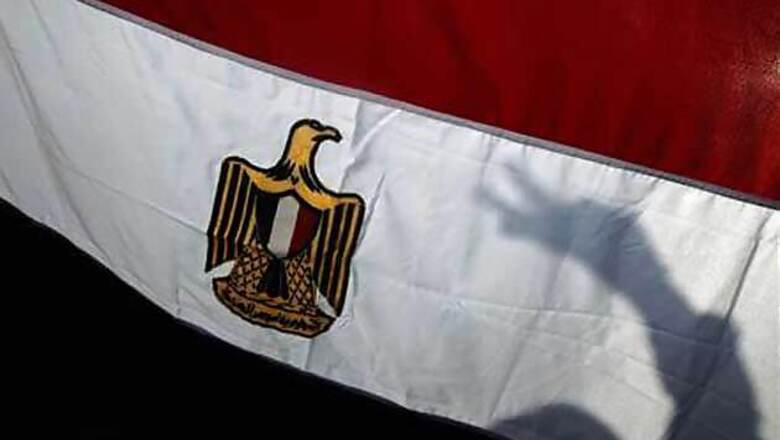
views
Cairo: An Egyptian court on Saturday upheld death sentences against 21 convicts of 2012's deadly soccer riot that killed 74 people, and acquitted 28 others, sparking off widespread violence that claimed at least two lives in the deeply polarised country.
The Port Said Criminal Court, headed by Judge Sobhy Abdel Meguid, confirmed the death sentence for 21 of 73 defendants accused of killing 74 fans, mostly of visiting Cairo side Al-Ahly, in the aftermath of a match that turned violent in Port Said in February 2012. The court also handed down life sentences to five people, with 19 receiving lesser jail terms and another 28 exonerated. Hassan Yassin, head of the Public Prosecution's technical office, has said that the prosecutor general wouldn't appeal the acquittals of the 28 defendants until reviewing the rationale behind the verdict.
As feared, the verdict failed to defuse tensions at a time when the whole nation is grappling with a political crisis, a weak economy and intensifying opposition to the rule of Islamist President Mohammed Mursi. The court case, which has been the cause of deadly violence recently, resumed this morning at the Police Academy in New Cairo amid security concerns, and immediately drew fiery responses from Port Said for the confirmed death sentences.
Two demonstrators died in Cairo in clashes with police, the head of the city's ambulance service was quoted by the BBC as saying. One was killed following inhalation of tear gas and the second by birdshot. Huge flames rose above the main building of the Egyptian Football Association in Cairo and a police officers' club in an affluent neighbourhood on an island in the Nile. Tharwat Seleem, a top official at the Egyptian Football Association said that all the original trophies won by Egypt in various football competitions were stolen.
Seleem was quoted by MENA as saying that the trophies were stolen before protesters set fire to the EFA's building in Gezira. Firefighters fought hard to bring the situation under control. The court handed 15-year sentences to General Essam Samak, the former head of police security, and to Brigadier General Mohammed Saad, who was responsible for the stadium gates, which were locked, when the riot broke out. Seven remaining police defendants were acquitted.
Protests had erupted in Port Said in late January 2013 when the court had sentenced the 21 defendants to death. The riot happened in Port Said last year when clashes took place inside a football stadium between fans of Al-Ahly club and Port Said club Al-Masry. Fans of Al-Ahly football club, whose members were killed in the stadium riot had warned that they would retaliate if the defendants were acquitted. Shortly after the verdict was announced, thousands of fans of Cairo's Al-Ahly club went berserk, burning down a police club and storming Egypt's football headquarters before setting it ablaze. Thick black smoke was seen billowing out over the Cairo skyline.
About 2,000 protesters blocked ferries headed from Port Said to Port Fouad, while burning tires. Later, the military convinced protesters to open the route. Most of the riot victims were supporters of Al-Ahly team, and fans were upset about the 'lenient' sentences. Protesters set fire to tyres and put up a huge banner at the entrance of the port demanding "independence for Port Said."
Ahlawy member Mohamed Samir said the protesters were reacting in anger to the acquittals of police officers in the case. They chanted "today ... today," referring to threats to block roads and Cairo metro lines, as well as to "paralyse the whole country," according to an earlier statement. Ultras supporting Port Said's Masry Club issued a statement today slamming the verdict upholding death sentences for 21 local supporters of the team. Ahead of the verdict, the army had assumed control in Port Said after the deadly unrest last week. On January 26, 2013, the court sentenced 21 defendants to death for their role in the massacre postponing the ruling for the security men till March 9, 2013.
After the death sentences were first announced in January, the news had led to a series of violent protests in the Suez Canal city that left 40 people dead.




















Comments
0 comment